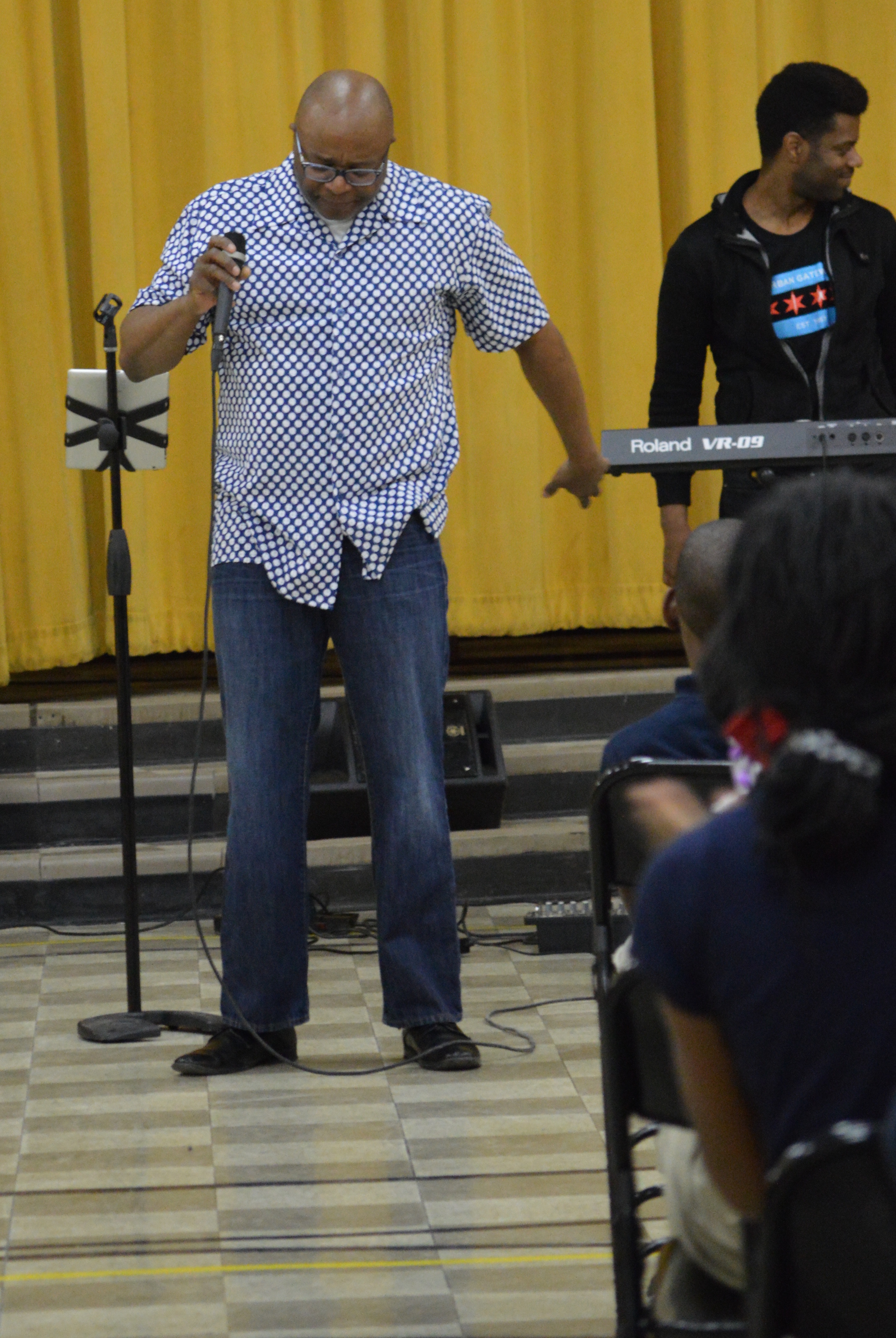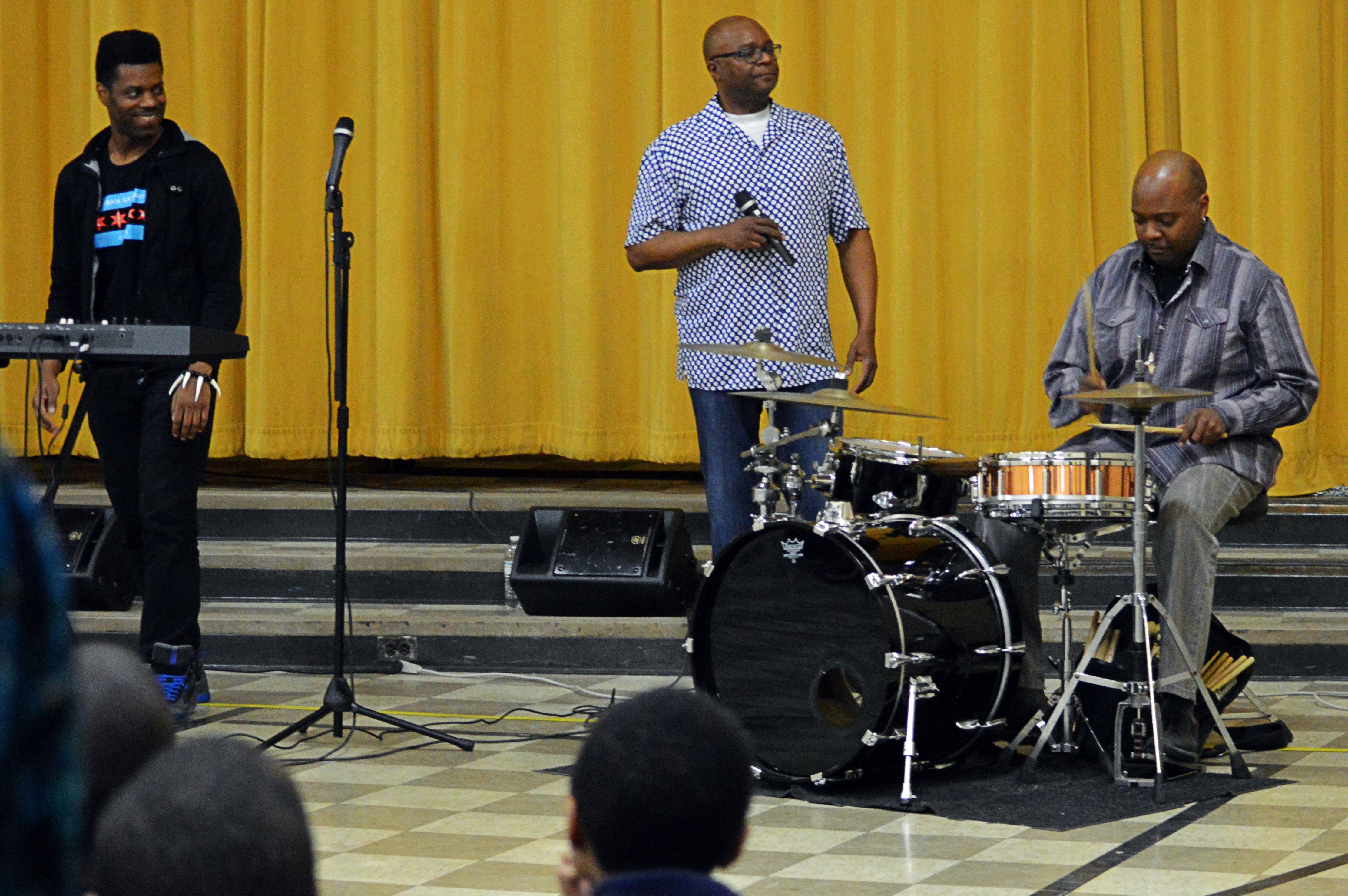About two weeks ago, I had the delightful opportunity to attend my first Urban Gateways touring performance as the Marketing and Communications Intern, and as someone who is immersed in Cultural Studies at the University of Illinois at Chicago, I became enthused with what Bruce A. Henry and his band offered with their show, “The Evolution of African-American Music: From Africa to Hip-Hop”, for predominantly black youth at a public elementary school in the North Lawndale community.
“The Evolution of African-American Music” is an interactive and multimedia concert for all ages that explores the history of African American music from the early introduction of slavery until the late twentieth century. Henry, a vocalist/composer/historian who has analyzed the power and the cultural ties of Afro Music Distinctions (AMD) throughout his childhood to adulthood, uses his award-winning talent and music to teach youth how African American history has evolved, immersed, and blended among time periods and exemplifies the importance of African American heritage through United States history and culture. From African folklore, to jazz, blues, and hip-hop, “The Evolution of African-American Music: From Africa to Hip-Hop” is not just a performance; it is an interactive educational technique for students to enter the world of African American creative voices and be part of the history.

As an undergraduate student engaged in coursework on the Sociology of Childhood and Youth, to say that Bruce Henry and his band encourage the Urban Gateways values of student confidence, self-management, creativity, and engagement is an understatement. The entirety of their performance allowed my mini-Sociologist-in-training to come out and analyze not just the performance, but what makes the performance so great—its audience. By observation, the school gymnasium was filled with an elementary school audience of mostly African American youth. It ranged in grade and age, from kindergarten-aged youth to about 7th to 8th-grade students, with a few students who seemed above the average elementary and middle-school age group. The students in the gym were also largely male.
“The Evolution of African-American Music” sought to bring attention to African American history and race, not to create division but rather to shed light on spirituality and empowerment that are critical for youth. With a disturbing high school dropout rate for black male youth in the nation, it is of the utmost importance that early childhood education and elementary schools cater to issues that affect their students through interdisciplinary approaches. With “The Evolution of African-American Music” and Urban Gateways, an organization whose high-quality arts programs have an impact of 80% student improvement in school focus, engagement, and participation, what better way to help complement a childhood education for this group of students?
Henry and his band contribute to Urban Gateways’ impact by targeting a specific student population and understanding how confidence, skills, and creativity can come with pride in heritage. History may be in the past, but its outcomes—both negative and positive—are important to bettering childhood education today.

Photos by Nikki Lewis
